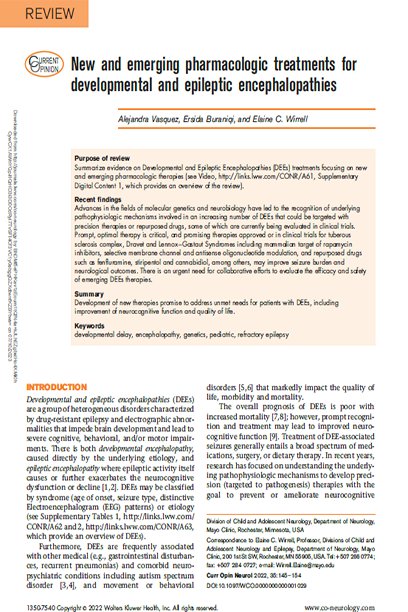New and emerging pharmacologic treatments for developmental and epileptic encephalopathies
April 2022
Purpose of review
Summarize evidence on Developmental and Epileptic Encephalopathies (DEEs) treatments focusing on new and emerging pharmacologic therapies (see Video, https://links.lww.com/CONR/A61, Supplementary Digital Content 1, which provides an overview of the review).
Recent findings
Advances in the fields of molecular genetics and neurobiology have led to the recognition of underlying pathophysiologic mechanisms involved in an increasing number of DEEs that could be targeted with precision therapies or repurposed drugs, some of which are currently being evaluated in clinical trials. Prompt, optimal therapy is critical, and promising therapies approved or in clinical trials for tuberous sclerosis complex, Dravet and Lennox–Gastaut Syndromes including mammalian target of rapamycin inhibitors, selective membrane channel and antisense oligonucleotide modulation, and repurposed drugs such as fenfluramine, stiripentol and cannabidiol, among others, may improve seizure burden and neurological outcomes. There is an urgent need for collaborative efforts to evaluate the efficacy and safety of emerging DEEs therapies.
Summary
Development of new therapies promise to address unmet needs for patients with DEEs, including improvement of neurocognitive function and quality of life.

